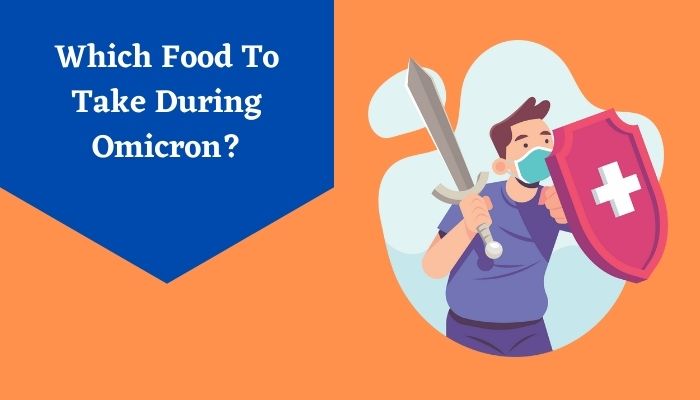Omicron is a relatively newer variant of the coronavirus that has plagued people since the dawn of the end of 2019. All variants of this virus predominantly affect the immune system and cause serious internal issues in the human body.
Omicron, in particular, has been known to affect the throat where you feel hurting pain, and itchiness. Thus, any diet food in omicron must be specially made to help facilitate smoothness when swallowing and ease the throat ache. It may also cause certain discomforts while eating, which is why you need to carefully contemplate the food to eat in omicron.
Foods to Eat In Omicron for Prevention
The key to fighting any variant of the novel coronavirus is to keep up your immunity. In the case of Omicron, you need to pay special attention to ensure that you are only consuming healthy food in omicron that does not antagonize the throat and helps build your immunity back.We have a list of food items that you can incorporate in your diet food in omicron, so let’s take a look:
Importance of Natural Foods in Your Diet in Omicron
Natural items of food carry a lot of vitamins, minerals, proteins, fats, and in general, nutrients for your body. They are readily and abundantly available in the form of fruits and vegetables that you can incorporate in your diet food in omicron.Fruits are excellent sources to acquire the necessary vitamins and calories that you need for daily activities. Given that the omicron virus affects your immune system, thus lowering your body’s ability to synthesize the necessary ingredients to create internal energy, fruits are excellent additions to food to eat in omicron.
Additionally, fruits also contain a lot of fibrous substances required to cleanse your internal organs. The phytonutrients and antioxidants serve to protect your internal organs against certain harmful products and help improve your immunity.
Fruits and vegetables are also rich in various necessary vitamins, especially Vitamins A, B-12, and C. These nutrients have been known to promote immunity and good gastrointestinal health. The flavonoids and anthocyanins also have a positive impact on the body to help build your immunity back up.
Importance of Sufficient Proteins Consumption in Omicron
Our bodies are largely composed of proteins, which makes it one of the most necessary ingredients in your diet food in omicron. They adapt our systems to fight against several infections by synthesizing targeted proteins to aid the immune system.Protein strengthens our core and reduces the effects of diseases, especially those that induce fatigue, which is a large part of what omicron does to the human body. Thus, incorporating significant amounts of protein into your diet will help alleviate the immune system and strengthen your body to fight against the virus.
As a rule, start implementing proteins in the form of soy products, legumes, eggs, dairy, and lean meats if you crave non-vegetarian options. Try not to eat too much meat though as it increases the heat ratio in the body and can often result in stomach pain, which can be a reason for concern.
Incorporate vegetables such as sweet potato, carrots, etc., that are also rich in proteins. You can even mix it up with fruits such as bananas, pomegranates, and other such variants.
Incorporating Fatty Food to Eat In Omicron
Eating unhealthy fats is a reason for concern around the clock but there is a certain necessity to fulfill the amount of natural and productive fats that your body needs to function efficiently.Introduce some good fats into your diet when choosing the food to eat in omicron. It is best to avoid sugary foods that induce fatty acids since they do affect the gastrointestinal system that you need to protect with healthy food for omicron.
Eat nuts such as walnuts, almonds, avocados, seeds, etc. Try to avoid food that is rich in fats such as processed items as not only do they cause bloating but affect the nutritional elements.
Drink Lots of Fluids to Stay Hydrated
Staying hydrated goes a long way into fighting symptoms of diseases that majorly affect your gastrointestinal system and respiratory systems.Drinking lots of fluids throughout the day is an excellent means to flush out toxins from your system and expel all the impurities in your body. This may even be internal cells and fluids that have interacted and been affected by the virus.
Fortunately, when we speak of hydration through healthy food for omicron, it includes a lot of delicious items of liquid to consume. You can eat vegetable soup or broth that contains high quantities of vitamins and minerals, sometimes even proteins. It is an excellent way to introduce balanced nutrients in your system without having to concern yourself with the pain emanating in your throat as a result of the virus attacking your system.
You can also opt to consume fluids like buttermilk, lime juices or lime water, jeera water, which is essentially made of cumin that helps build immunity and kokum sherbet. These fluids are made up of natural ingredients and can help speed up the process of expelling the toxins generated in your body from the virus.
These fluids also address the major issue when choosing food to eat in omicron by reducing the impact on your throat to a large extent. Thus, you can introduce the necessary nutrients to your body without aggravating the situation.
The strain of the omicron variant is reportedly strong but if you are adequately vaccinated, the effects may be far less serious. It is best to balance your diet with food to eat in omicron that helps fight the virus and improves your immunity internally.
We are all as safe as we want to be. If you do contract the omicron strain, switch to consuming only the food to eat in omicron that is mentioned above or recommended by your medical professional. Work on improving your immunity to reduce the effects of the virus on your body and recover quickly.
